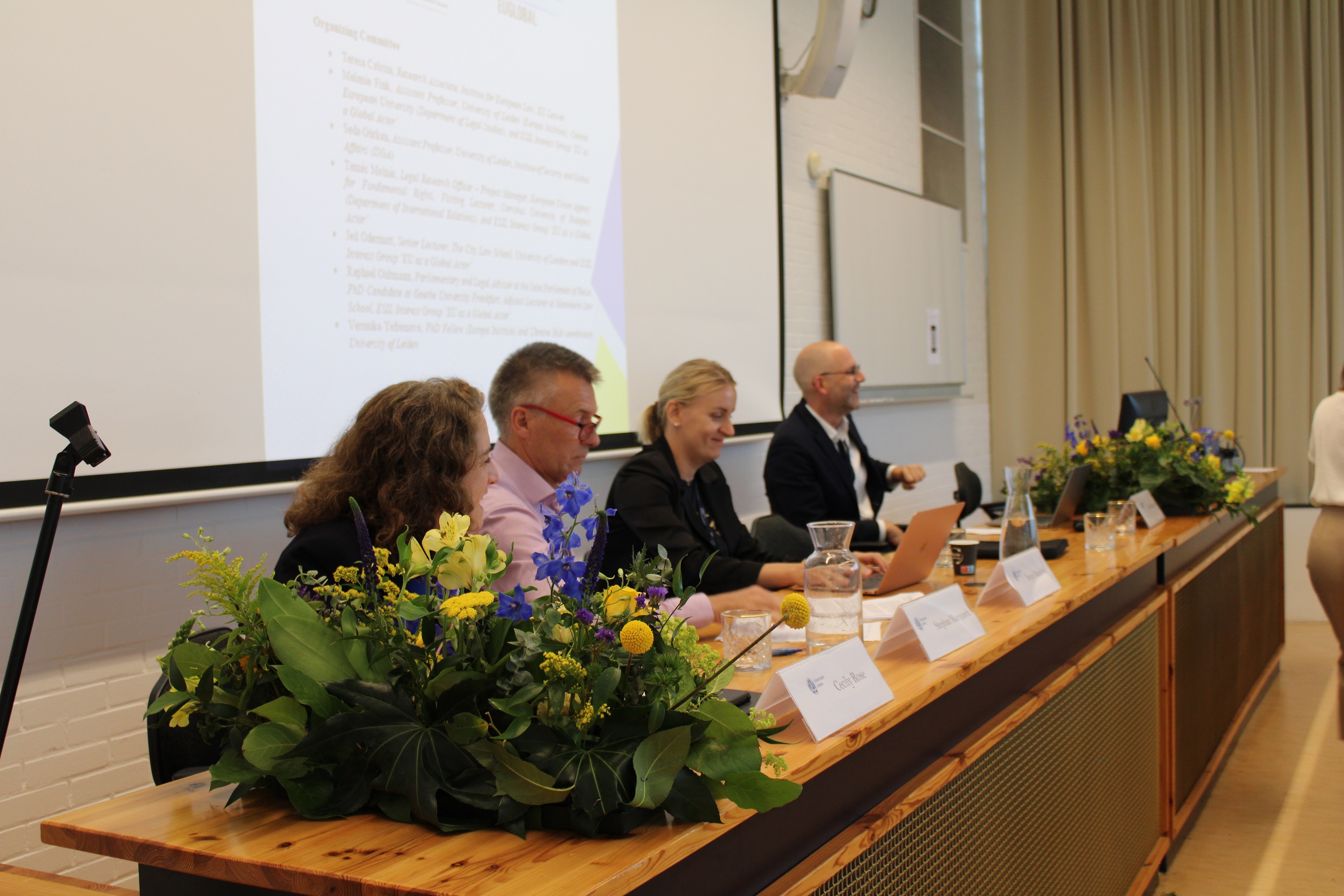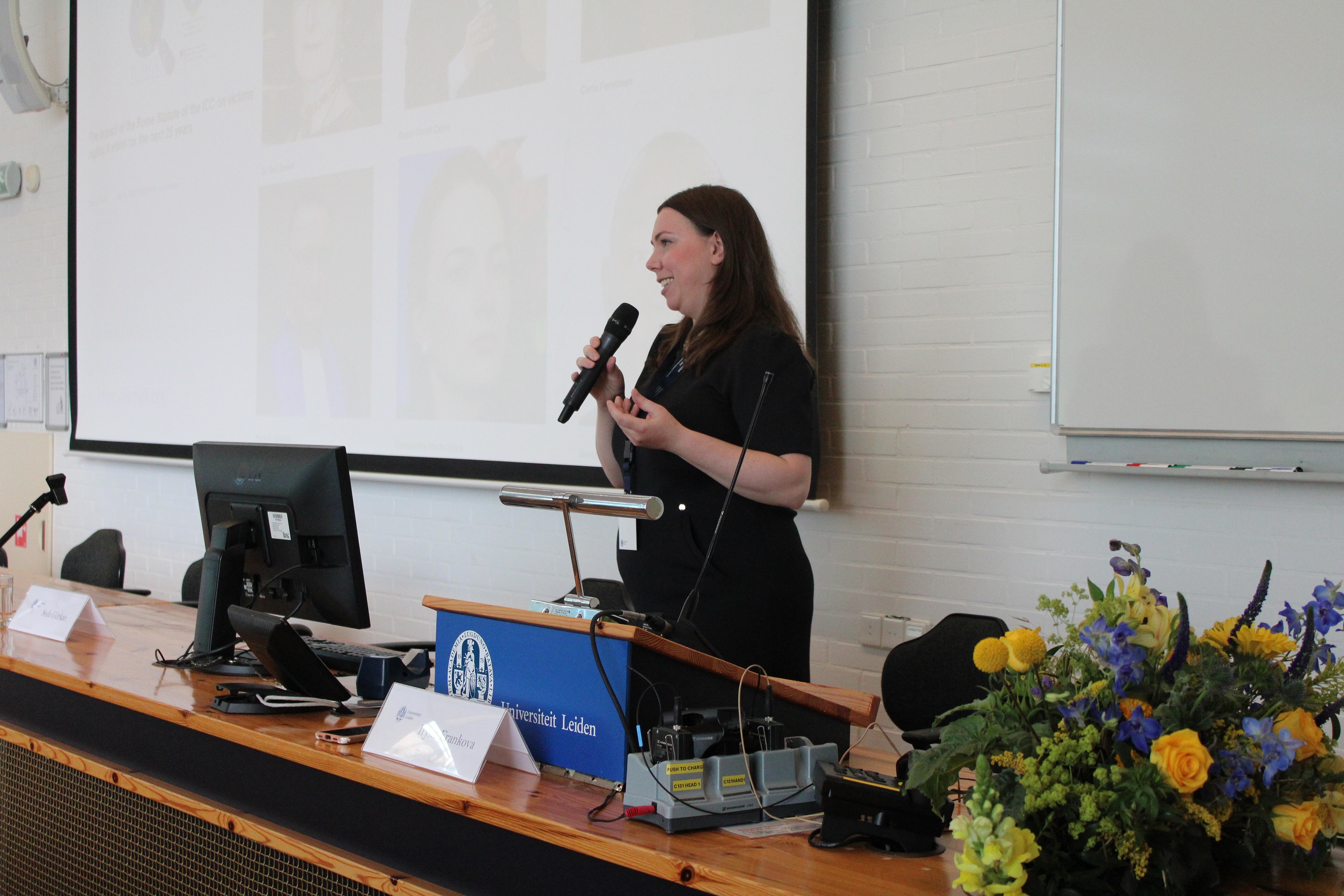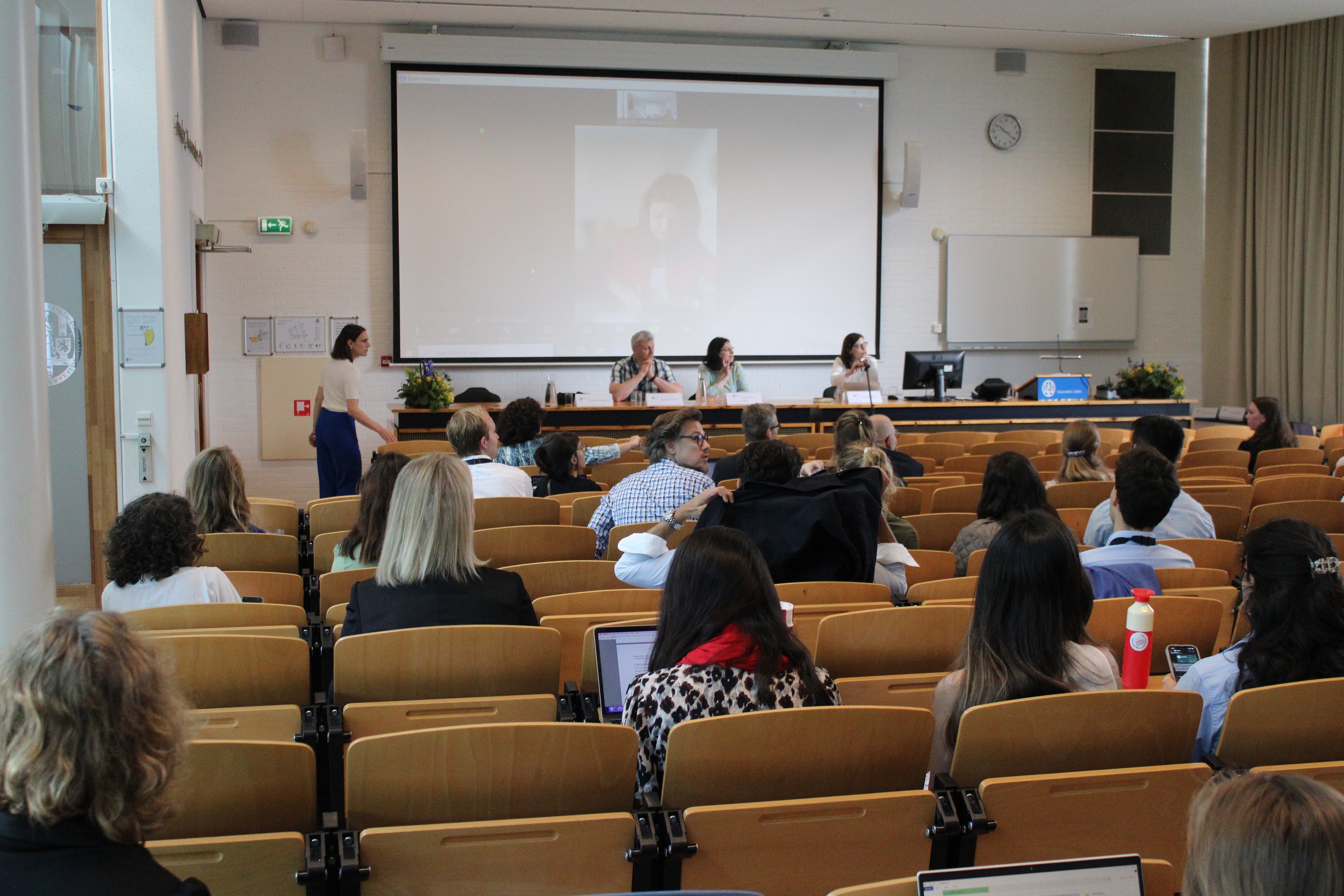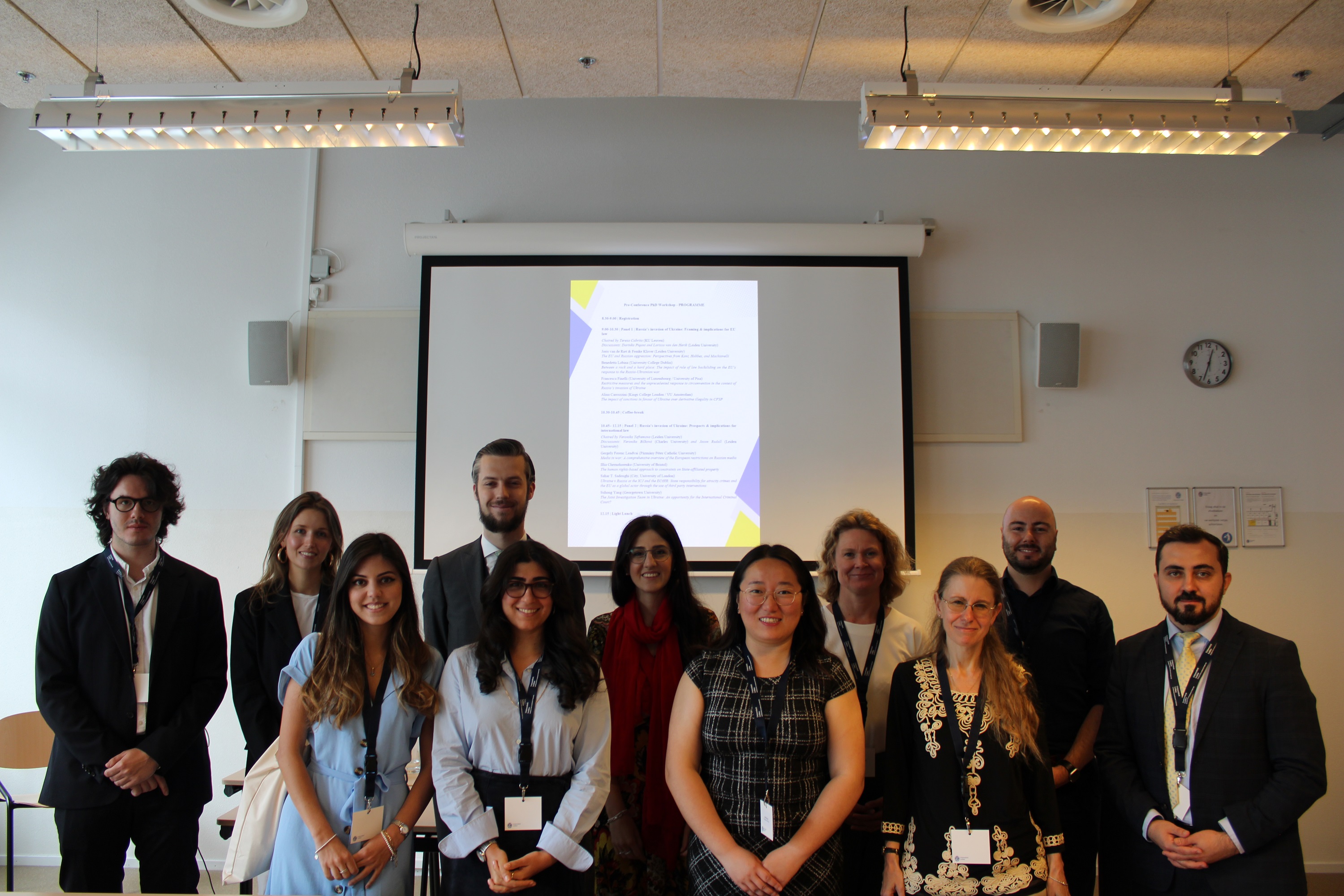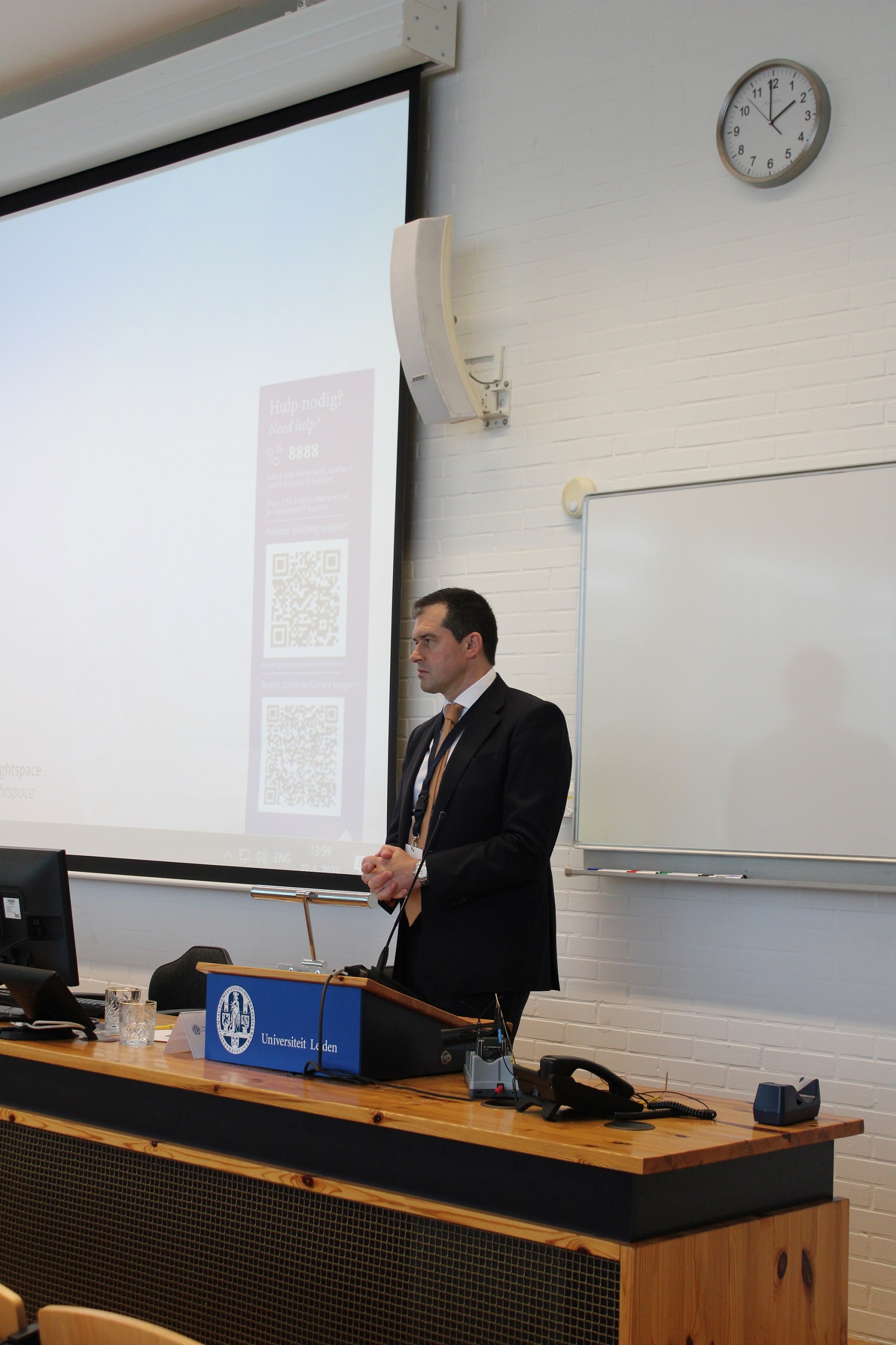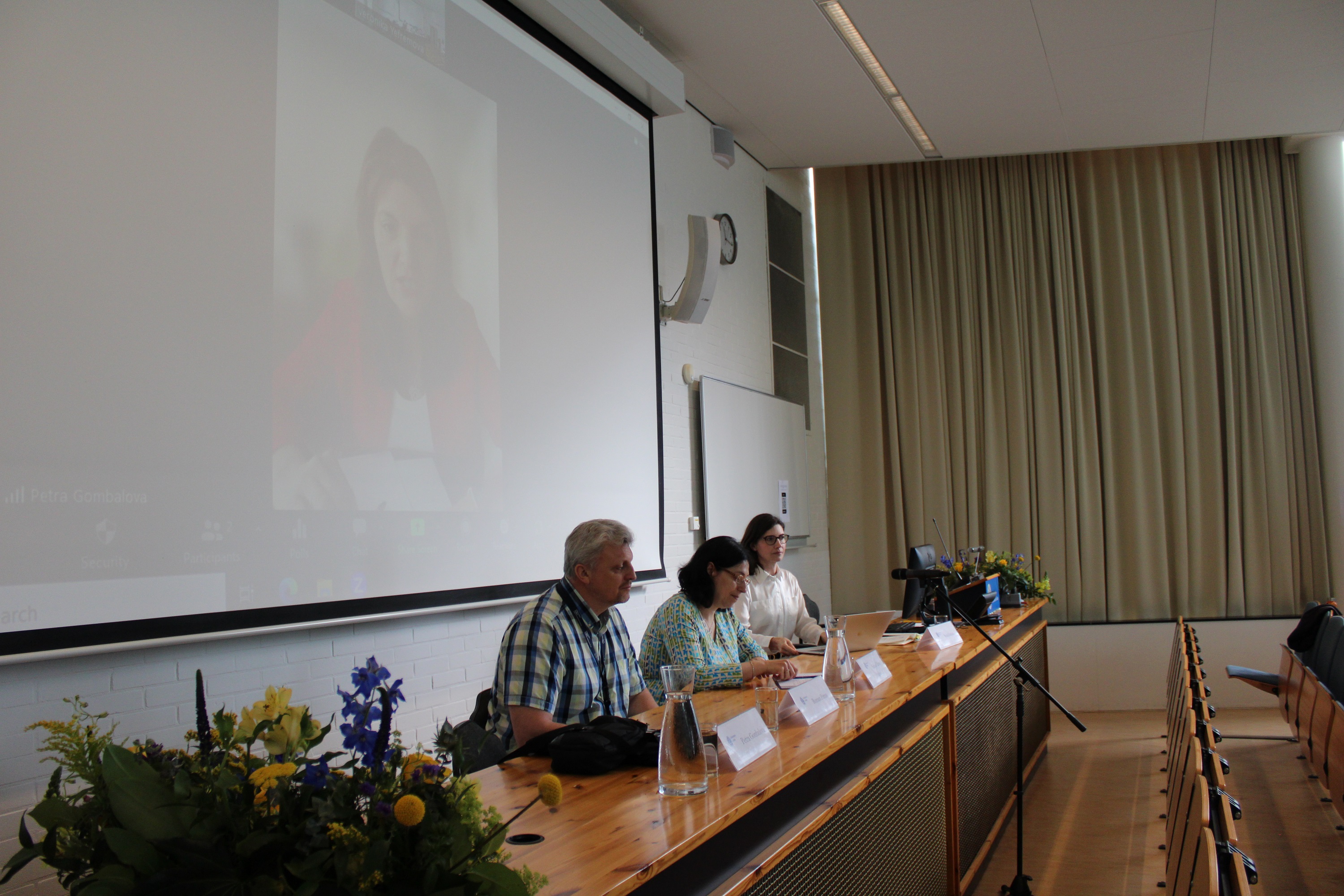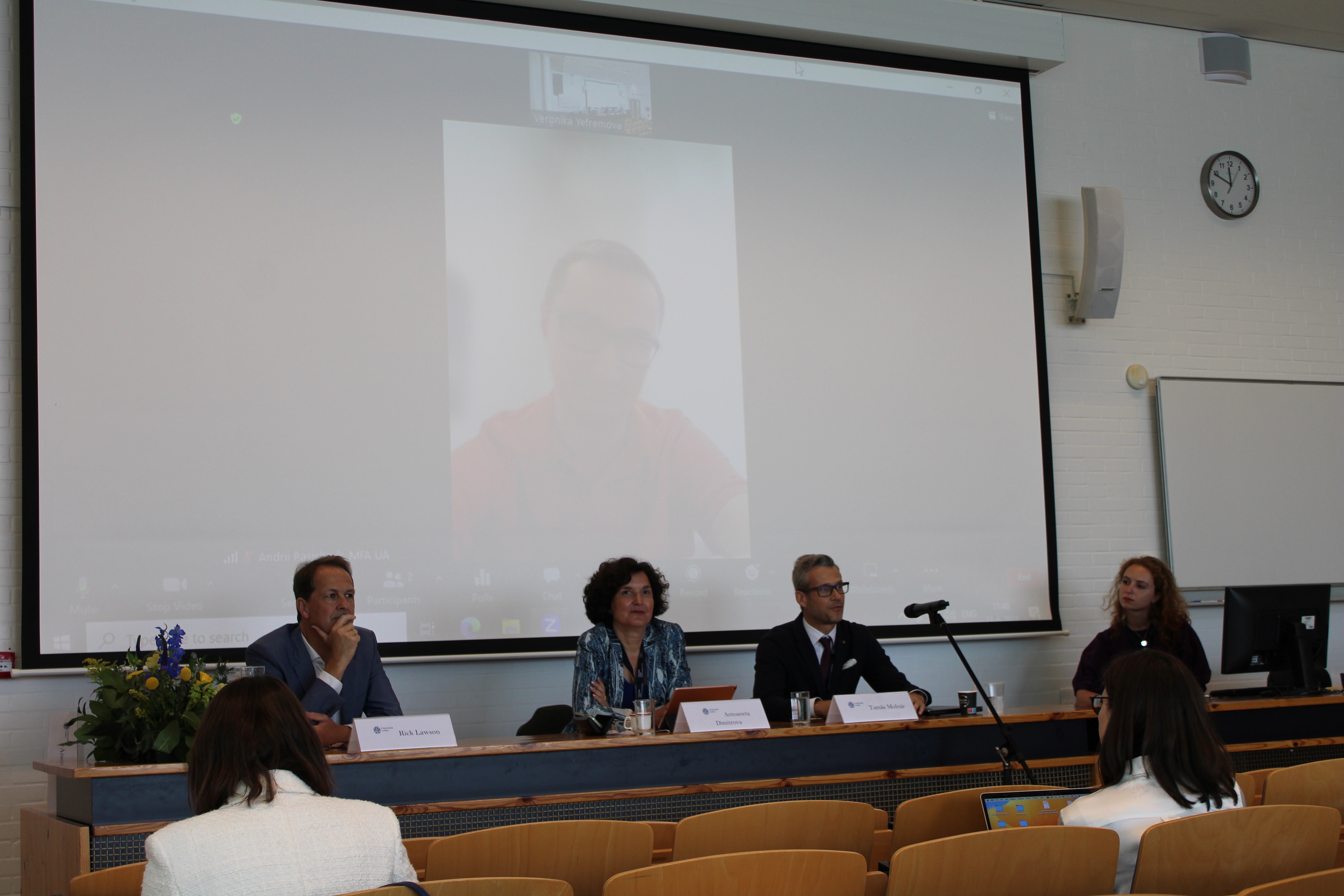The EU’s Response to Russia’s Invasion of Ukraine: International and European Perspectives
Since Russia’s invasion of Ukraine in February 2022, the European Union (EU) and its Member States have adopted wide-ranging legal and political measures to support Ukraine in its struggle.
These measures have included political support as well as financial, military, and humanitarian assistance in solidarity with Ukraine and its people. Beyond their impact on the war, these measures also raise important questions for the EU’s role in international politics and under EU law, human rights law, and various branches of public international law.
In this context, the European Society of International Law (ESIL) Interest Group ‘EU as a Global Actor’, together with Leiden University (Europa Institute, Europe Hub and Ukraine Hub), KU Leuven (Institute for European Law and RESHUFFLE project) and the City Law School, University of London, organised a conference on ‘The EU’s Response to Russia’s Invasion of Ukraine: International and European Perspectives’, which was held on 22 and 23 June 2023 at Leiden Law School. The aim of the event was to bring together legal and political science scholars and practitioners to discuss the war in Ukraine, its consequences, and the EU’s response.
PhD Workshop
The event kicked off with a PhD workshop that brought together doctoral researchers working on legal issues related to Russia’s invasion of Ukraine. The first panel, chaired by Teresa Cabrita (KU Leuven), addressed Russia’s invasion of Ukraine: Framing & Implications for EU Law. The panel included presentations on a diverse range of issues related to EU law, including philosophical perspectives on the EU and on Russia’s aggression (Joris van de Riet & Femke Klaver - Leiden University); rule of law backsliding and its impact on the EU’s response to Russia’s invasion of Ukraine (Benedetta Lobina - University College Dublin); and the unprecedented character and implications of EU restrictive measures and sanctions (Francesca Finelli - University of Luxembourg / University of Pisa). Darinka Piqani (Leiden Law School) and Larissa van den Herik (Leiden Law School) acted as discussants. Their questions focused on the broader implications of the EU’s response to its position as a global actor in the field of international peace and security, on the impact of recent CJEU case law on the coherence of EU Member States’ response to this conflict. They also discussed the implications of EU sanctions against Russia on other sanction regimes and on the effectiveness of sanctions as a foreign policy tool.
The second panel, chaired by Veronika Yefremova (Leiden University), turned to the issue of Russia’s invasion of Ukraine: Prospects & Implications for International Law. The presentations focused on the international law implications of the EU’s response. They included discussions about restrictions on Russian media in Europe (Gergely Ferenc Lendvai - Pázmány Péter Catholic University); a human rights-based approach to constraints on State-affiliated property (Illia Chernohorenko - University of Bristol); third-party interventions before the International Court of Justice and the European Court of Human Rights (Sahar Sadoughi - City, University of London); and the International Criminal Court’s participation in a Joint Investigation Team concerning Ukraine (Suhong Yang - Georgetown University). Veronika Bílková (Charles University) and Jason Rudall (Leiden University) acted as discussants. The debate touched on issues such as the broader implications of cases such as RT France and recent Venice Commission opinions for EU Member States, the reversibility or lack thereof of countermeasures, the added value of third-party interventions in international cases, and the implications for the ICC of its participation in a JIT in this specific conflict and in future investigations.
Conference Opening
Stefaan Van den Bogaert, acting dean of Leiden Law School, opened the main conference, and welcomed the keynote speaker, Ambassador Vsevolod Chentsov (Head of Mission of Ukraine to the EU). Ambassador Chentsov, drawing lessons from past Russian aggression, outlined the steps towards guaranteeing Ukraine’s long-term security , including the establishment of a special tribunal and the 10 points for peace made by President Zelensky.
Panel 1: Human Rights
Armed conflict, wherever it takes place, always has great implications for the protection of human rights. The first panel, chaired by Jorrit Rijpma (Leiden University), addressed the human rights issues related to the war in Ukraine. Iuliia Anosova (Ghent University, CSO ‘La Strada-Ukraine’) discussed her research on gender-based violence against women, and the EU’s potential role in countering such violence, particularly in the context of Russia’s invasion of Ukraine. Veronika Bílková (Charles University) discussed the effects of the conflict in Ukraine on the human rights situation in the EU as a whole, as these effects almost by definition transcend State borders. The third panelist, Alina Cherviatsova (Ghent University) presented her research on how culture has been used as a weapon in war.
Panel 2: International Justice and Accountability
The second panel, chaired by Jed Odermatt (City, University of London), addressed the issue of international justice and accountability. Cecily Rose (Leiden University) offered an international dispute settlement perspective on the current Allegations of Genocide (Ukraine v. Russian Federation) case before the ICJ. Iryna Marchuk (University of Copenhagen) discussed the ICC’s investigation of the conflict in Ukraine and the relationship with national war crimes trials, including hybrid adjudication. Stephan Marquardt (European External Action Service) discussed the EU’s role in establishing a special tribunal for prosecuting the crime of aggression.
Panel 3: EU Restrictive Measures
The third panel, chaired by Teresa Cabrita (KU Leuven), focused on EU restrictive measures. The panel consisted of Madalena de Almeida Veiga (European External Action Service), Larissa van den Herik (Leiden University), Evelien Campfens (Leiden University), Clara Portela (University of Valencia) and Charlotte Beaucillon (University of Lille). Perspectives were offered on the legal issues arising from taking restrictive measures in response to the Russian invasion (Veiga) as well as the potential innovation of the EU sanction toolbox on the basis of the precedent set by the current measures against Russia (Van den Herik) and the transformation that these sanctions might bring to EU decision-making more generally (Portela). The panel included a presentation of the outcome of a European Parliament study on the protection of cultural heritage in Ukraine (Campfens) and concluded with a discussion of the effectiveness of sanctions and the need to strike a balance between short-term gain and more long-term consequences.
Opening – Day Two
After a successful first day, the second day commenced with an opening address delivered by Iryna Frankova (Vrije Universiteit Amsterdam), a clinical psychologist specialised in traumatic stress. Dr Frankova addressed the need for psychological support for Ukraine’s forcibly displaced people in the EU, offering another angle to the legal and political discussions that formed the heart of the conference.
Panel 4: The EU and Ukraine
The address was followed by the last panel of the conference, chaired by Seda Gürkan (Leiden University), on EU-Ukraine relations. The panel consisted of Suzana Elena Anghel (European Parliament Research Service), Petra Gombalová (Head of the Ukraine division, European External Action Service) and Roman Petrov (National University of Kyiv-Mohyla Academy). Each panelist discussed a different aspect of EU-Ukraine relations What does this relationship look like in the changing geopolitical climate (Gombalová)? What is the impact of the Ukraine war on the EU’s quest to become strategically autonomous (Anghel)? And what happens and must happen when a country at war aims to become a member of the EU (Petrov)? Questions were raised by the audience on the future status of the EU’s association agreement with Ukraine and whether Ukraine meets the different accession requirements (Copenhagen criteria) to become an EU Member State.
Roundtable: 'The day after the war’
The conference’s last session was a roundtable on the topic ‘The day after the war: A look at the future’. The roundtable was chaired by Támas Molnár (Legal Advisor at EU Fundamental Rights Agency, affiliated with Corvinus University of Budapest) and included contributions by Antoaneta Dimitrova (Leiden University), Rick Lawson (Leiden University) and Andrii Pasichnyk (Deputy Director, International Law Department, Ministry of Foreign Affairs of Ukraine). It may seem strange to discuss what happens after the war while the fighting continues, but the roundtable clearly showed how important it is to look beyond the current state of affairs. Speakers stressed that, sooner rather than later, collective efforts must be made to not only determine how Ukraine may be rebuilt, but also how its institutions can be strengthened (in a democratic sense) compared to their condition before the war even broke out. It was discussed, too, that there is a need to establish what is true and what is not, in order to reconcile what happened during the war and to hold those responsible to account.
Closing and outlook
The conference was closed by remarks from Melanie Fink (Leiden University). The organisers drew attention to the forthcoming Special Issue of European Papers, which will publish selected papers presented at the conference. The conference successfully brought together early career and established researchers; lawyers and political scientists; practitioners and academics; international law and EU law experts; and speakers from Ukraine and across Europe and the world. It is hoped that this debate and dialogue can help better understand how the EU, its Member States and its citizens can work towards supporting Ukraine and its people.

